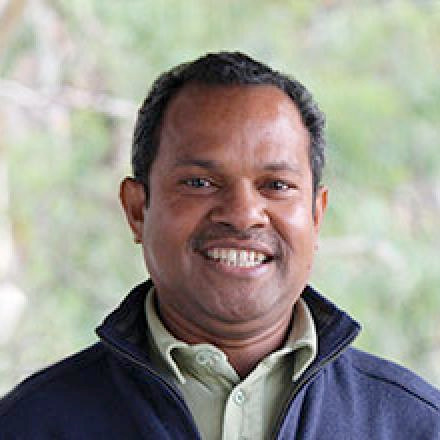
Aderito Soares is a highly valued DTP trainer, sharing his knowledge and insights from a lifetime of work as an advocate for human rights and for Timorese self-determination, and many different roles, including as Inaugural Commissioner of Timor-Leste’s Anti-Corruption Commission (2010-2014).
Aderito was only a child of 6 years old when Timor-Leste was invaded by Indonesia in 1975, and he grew up in a very repressive environment. Aderito became involved in the underground resistance to Indonesia’s military occupation, and became a key organiser of young people and students. Prior to Timor-Leste’s independence Aderito worked as human rights lawyer for the Jakarta-based human rights organisation, ELSAM. In that capacity, Aderito travelled extensively to West Papua conducting human rights investigation and delivered human rights training. After Timor-Leste’s independence, Aderito was elected as a member of Timor-Leste’s Constituent Assembly, where he played a crucial role in drafting Timor-Leste’s first Constitution.
“I saw peoples’ suffering around me. That is why human rights and development were my crucial focus when I was in the Constituent Assembly. I believe that if you want to have a just society, ensuring and protecting human rights is of paramount importance, which is also why I contribute my time to DTP as a trainer.”
Aderito has also written extensively on politics, human rights and development of Timor-Leste.
Aderito has been contributing as a trainer at DTP for over 15 years and has trained on advocacy strategies and organising, business and human rights, human rights and anti-corruption and democracy and human rights.
In Aderito’s view, DTP is doing “a fantastic job”.
“I have to give credit to DTP; as a human rights training organisation, I think one of the strengths of DTP is that they bring together human rights advocates from different backgrounds and share their experiences. That is very important because working in this environment can sometimes be very lonely, so it is essential to bring everyone together to share their experience at some stage. There are so many DTP alumni working worldwide, some even becoming ministers.
“DTP helps its trainees to see human rights in a broader context — participants are helped by DTP to see how power plays behind the struggles for human rights. DTP allows participants to see who the actors are, who the adversaries are and who the allies are while trying to put everything in the broader context of human rights. I think this is another one of DTP’s strengths.”
Aderito has many fond memories of DTP training. He especially remembers the training in Dili soon after the independence of Timor-Leste, where DTP brought participants to Timor-Leste, including from the Middle East. “It was great to see them in Timor-Leste, a new country at the time. I was touched, it was a great moment.”
Aderito also remembers his exchange with the Myanmar diaspora communities in a recent DTP human rights advocacy training in Canberra. “I was really moved to see them connecting and sit together and talk about their friends and families back home who were tortured, arrested and harassed by the military. This is why DTP’s training is so meaningful. They bring together people who talk about suffering, and believe that from that, they can see the light at the end of the tunnel. In the end, people believe that justice, human rights, and democracy will prevail.”
In the future, in Aderito’s view, DTP has much work to do, especially in the Pacific region with the increasing involvement of the great powers and the climate crisis emergency. “DTP also has to consider training on climate change as it impacts the basic rights of human beings, from right to food, security, and housing – it impacts everything.”
DTP acknowledges the traditional custodians of the land on which we work, the Bedegal people of the Eora Nation. We recognise their lands were never ceded, and we acknowledge their struggles for recognition and rights and pay our respects to the Elders – past, present – and the youth who are working towards a brighter tomorrow. This continent always was and always will be Aboriginal land.
Aboriginal and Torres Strait Islander peoples should be aware that this website contains images or names of people who have passed away.
DTP acknowledges the traditional custodians of the land on which we work, the Bedegal people of the Eora Nation. We recognise their lands were never ceded, and we acknowledge their struggles for recognition and rights and pay our respects to the Elders – past, present – and the youth who are working towards a brighter tomorrow. This continent always was and always will be Aboriginal land.
Aboriginal and Torres Strait Islander peoples should be aware that this website contains images or names of people who have passed away.
Privacy Policy | Terms of Use | Disclaimer | Policies
© 2022 Diplomacy Training Program | ABN 31 003 925 148 | Web Design by Studio Clvr